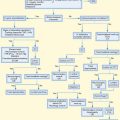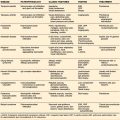207 Leadership and Emergency Medicine
Leadership Qualities
Manager Versus Leader
This process requires the leader to have a skill set for each of several roles:
Visionary: The ability to see that options exist.
Decision maker: The ability to choose among options. These options may be self-generated or given to the leader by others, but decisions need to be explicit and timely, neither too early (insufficient data, inadequately prepared staff) or late (problem requiring change is now too large, with a different set of options prevailing). Making decisions is hazardous, but leaders cannot be adverse to risk. Recognized leaders rarely revisit decisions and always look forward.
Informant: The ability to inform the members of the organization effectively of the nature of the change and the direction it will take them and also inform related individuals outside the organization of how they will be affected.
Tone setter: Setting the tone (creating the atmosphere) that will allow the change to develop is actually more important than any policy that directs the change.
Character
“He listens, he is honest and he always takes the high road.”
Cheryl Kane, street nurse, Boston Health Care for the Homeless, about her boss, Robert Taube
Campbell MJ. Five gifts of insightful leaders. Newton, MA: Charlesbank Press; 2006.
Gikley RW. The 21st century health care leader. San Francisco: Jossey-Bass; 1999.
Harvard Business Review. Harvard Business Review on leadership. Boston: Harvard Business School Press; 1998.
Maxwell J. The 21 indispensable qualities of a leader. Nashville, TN: Nelson Business; 1999.
Morrell M, Capparell S. Shackletons’s way. New York: Penguin; 2001.






